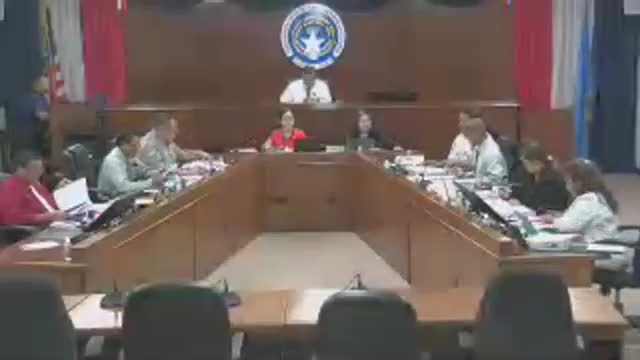Senate passes amended FY2025 budget bill restoring employee hours; one senator objects over process and casino payments
Get AI-powered insights, summaries, and transcripts
Subscribe
Summary
The Senate passed House Bill 24-6, HD1 (an amendment to the FY2025 Appropriations and Budget Authority Act) by roll call: 7 yes, 1 no, 1 absent. Dissent centered on alleged procedural irregularities and inclusion of funds for former casino commissioners' back pay.
The Senate approved an amended fiscal-year 2025 appropriation measure on Feb. 14, passing House Bill 24-6, HD1, which amends Public Law 23-26 to allocate funds including restoring government employees’ work hours and appropriating a balance for a settlement fund.
Floor leader moved for passage and the motion was seconded. The Senate then debated the bill. Senators and members raised procedural and substantive questions about specific allocations. Senator Magofna asked whether it was legal to include an $1.8 million allocation of SNILD funding in the amended budget without a separate appropriation session; the transcript shows the legal counsel described the language as an amendment authorizing the use of general funds to pay certain casino commission expenses and said members should answer whether to approve the proposal.
Senator Babauta voiced strong opposition to the process used to bring the bill to final reading without committee vetting and objected specifically to line items that would pay back pay to former casino commissioners and to the absence of the constitutionally required 25% allocation for public schools. She said her no vote represented opposition to those inclusions and urged the governor to consider a line-item veto on the casino-commission payments.
Roll call produced seven yes votes, one no, and one absent; the clerk recorded the result as passage. During floor discussion, members identified totals and schedule items related to payments to former and current casino commissioners; the transcript records schedule B amounts and names of six commissioners listed for payment under the appropriation.
Supporters said the bill was necessary to restore employees’ hours (the record references reinstating 80 hours and addressing pensioner adjustments) and to finalize fiscal-year obligations. After the vote, the Senate declared House Bill 24-6, HD1 passed.
The transcript records follow-up concerns from senators about transparency, allocation priorities, and whether certain expenditures represent permissible uses of central-government funds. Those issues were raised on the floor and remain part of the public record of the bill’s passage.
